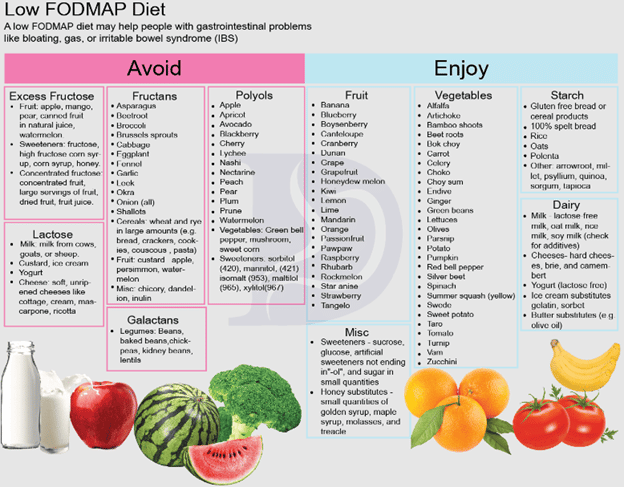Apply Now
Understanding Egg Consumption and Its Place in Diets
Eggs are a dietary staple found in many cuisines around the world, but their classification often leads to confusion. Commonly referred to as animal products, eggs sit in a category apart from meat. They are generally recognized for their high nutritional value and are often included in discussions of dietary proteins. Despite this, many still grapple with the differences between eggs, dairy, and meat, which shapes perceptions and choices regarding their consumption.
Eggs serve as an excellent source of protein, essential vitamins, and minerals. Yet, many people are also concerned about the health implications of egg consumption, particularly regarding cholesterol levels. This article aims to explore the various types of eggs available, their nutritional benefits, and the impact they can have on overall health, alongside their treatment within different dietary frameworks such as vegetarianism. We’ll also take a deeper look into not only the health of eggs but ethical concerns surrounding their production and sustainability.
For a more in-depth understanding of the role eggs play in our diets, their potential health risks, and the alternative options available to consumers, dive into the sections below.
Exploring the Nutritional Values of Eggs
Understanding the nutritional values of eggs is crucial in appreciating their place in our diets. Generally, eggs are an excellent source of high-quality protein. One large egg contains about 6 grams of protein, providing essential amino acids that our bodies need for muscle repair and growth. The protein found in eggs is comparable to that found in meat, though distinctions do exist regarding bioavailability and the types of proteins.
Eggs are also a source of vital vitamins and minerals including vitamin B12, riboflavin, and selenium. These nutrients support metabolism, immune function, and overall health. However, there is ongoing debate regarding the cholesterol content in eggs and its implications for heart health. One large egg contains approximately 186 mg of cholesterol, primarily located in the yolk.
Despite previously held beliefs linking egg consumption to increased cholesterol levels in the blood, newer studies suggest that for most people, dietary cholesterol has minimal impact on blood cholesterol levels. Instead, saturated fats and trans fats have a more significant effect.
This leads us to address the energy-boosting benefits of eggs in daily nutrition, particularly for athletes and active individuals. The combination of protein and nutrients in eggs aids in recovery and overall metabolism, showcasing them as a practical addition to the diet for those engaged in physical activities.

Types of Eggs and Their Benefits
When it comes to the types of eggs available, consumers can choose from various categories: cage-free, free-range, and organic among others. Each type differs not only in production methods but also slightly in nutritional value and ethical implications.
**Cage-Free Eggs**: These are produced by hens that are not confined to cages but are still kept indoors. While they enjoy more space than caged hens, they may not have outdoor access.
**Free-Range Eggs**: Hens are allowed access to the outdoors, which can lead to better welfare practices. Nutritionally, these eggs can sometimes have higher omega-3 levels due to the hens’ diets, which often include access to grass and insects.
**Organic Eggs**: Beyond the welfare of the animals, organic eggs come from hens fed organic feed without synthetic additives. They are typically considered a healthier option, aligning with many consumers' values regarding ethical farming practices.
Understanding these categories can assist consumers in making informed decisions that reflect their dietary preferences and ethical considerations.
Cooking Techniques and Recipes Involving Eggs
The versatility of eggs makes them a valuable ingredient in various cuisines. From boiled and scrambled to poached and fried, each method yields different textures and flavors that can enhance a dish.
For breakfast lovers, scrambled eggs remain a classic choice, easy to prepare and rich in protein. A simple recipe for scrambled eggs can include:
1. Whisking together eggs with salt and pepper.
2. Cooking in a non-stick pan with a small amount of butter or oil until softly set.
3. Adding herbs or cheese for an enhanced flavor profile.
Boiled eggs are another popular and convenient option. They can be made soft or hard-boiled depending on preference. The method involves placing eggs in boiling water, timing for desired doneness, and cooling them in ice water to stop cooking.
Beyond breakfast, eggs feature prominently in dishes across cultures, from the French omelette to the Indian masala egg curry, showcasing their adaptability and the array of flavors they can provide.

Health Benefits and Risks of Eggs
The health benefits of eggs are numerous but not without scrutiny. Beyond just their protein content, eggs are packed with vitamins and minerals crucial for a well-rounded diet. As mentioned, they contribute significantly to muscle repair, making them an excellent fuel source for athletes and active individuals.
Nonetheless, concerns about cholesterol still persist. It's essential to highlight the differences between dietary cholesterol and blood cholesterol. While eggs do contain cholesterol, current research suggests that consuming them in moderation does not pose a significant risk of heart disease for most people.
However, for those with specific health conditions, such as hypercholesterolemia, it's wise to consult healthcare professionals regarding egg consumption. It's also beneficial to incorporate eggs into a balanced diet that includes plenty of fruits, vegetables, and whole grains.
Furthermore, eggs can offer surprising benefits for skin health. The nutrients found in eggs, particularly vitamin A and certain antioxidants, can help maintain healthy skin as well as promote healing and rejuvenation.
This section also raises awareness about potential allergies related to eggs. Some individuals may be allergic to egg proteins, which can cause various reactions ranging from mild to severe. Understanding these allergies and their implications is crucial for safety.
Overall, embracing the health benefits of eggs while being mindful of the risks will allow consumers to enjoy their nutritional value without compromising their health.
Ethical and Environmental Considerations in Egg Production
As consumers become increasingly aware of ethical concerns, the focus on egg production is more pronounced. Traditional farming practices raise questions about animal welfare and the ecological impacts of egg sourcing. This consideration includes understanding how hens are raised and the conditions they live in.
Cage-free and free-range systems present better living conditions for hens compared to battery cages. These practices align with consumer demand for ethical options. Sustainable sourcing of eggs addresses environmental concerns as well, as conventional egg production can have a significant carbon footprint, contributing to wider ecological issues.
The cultural perceptions surrounding egg production are diverse, varying from region to region. Some cultures prioritize local, sustainable egg sources while others may emphasize traditional farming methods as superior. These perspectives influence consumer behavior and choices related to egg consumption.
Incorporating these ethical considerations into one’s dietary choices can lead to a broader understanding of the food system and its impact on health and sustainability.
Eggs in Different Cuisines Around the World
Eggs have been a culinary staple globally, with each culture having its signature egg dishes. In the Mediterranean, for instance, you will find the classic shakshuka — poached eggs in a spicy tomato sauce, revered as a breakfast dish.
Japanese cuisine frequently features tamagoyaki, a layered omelet that is both a breakfast staple and a versatile side dish enjoyed in various meals. Similarly, in Indian cooking, eggs are often used in curries, showcasing the adaptability of eggs across culinary boundaries.
Exploring the role of eggs in diverse cuisines not only illustrates their importance in different diets but also showcases the creativity involved in cooking with this ingredient. Whether incorporating them into various traditional dishes or experimenting with contemporary recipes, eggs continue to bring nutritional value and flavor to meals worldwide.

Conclusion
Eggs are a unique food product that balances health benefits with ethical considerations in production. Understanding their nutritional value, types, and the roles they play in various cuisines allows consumers to make informed dietary choices. As discussions around food consumption rights and sustainability expand, the versatility of eggs as a nutritional powerhouse remains steadfast.
As we look towards the future of dietary trends, eggs are likely to retain a prominent position in many diets. By embracing sustainable practices in sourcing and cooking eggs, we can enjoy their benefits while promoting an ethical stance towards animal welfare and environmental conservation.
Through education and awareness, consumers can navigate the complexities surrounding egg consumption with confidence, ensuring that they make choices aligned with their dietary preferences and ethical beliefs.



